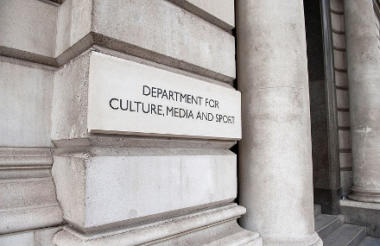Following today's announcement that responsibility for civil society is to move to the Department for Culture, Media and Sport, Kirsty Weakley asks whether this is a good idea.
This morning it was confirmed that the civil society brief and its minister have moved to the Department for Culture, Media and Sport, a move that will no doubt have far-reaching consequences for the sector’s relationship with government.
Just last week Acevo, NCVO, Small Charities Coalition, Charity Finance Group and Association of Charitable Foundations told the House of Lords committee on charities that the sector’s relationship with government had deteriorated in recent years - so maybe the OCS has not been doing a good enough job?
It’s fair to say that when the rumour that the civil society brief was to move with Wilson started circulating on Sunday morning the reaction from the sector was not particularly enthusiastic.
The Office for the Third Sector was moved into the Cabinet Office under Ed Miliband in May 2006 and renamed the Office for Civil Society under the coalition government in 2010. The charity policy brief had previously been carried out by a unit in the Home Office.
The move into the Cabinet Office, which works across Whitehall, was seen as a sign that charities were central to government policy, particularly in service delivery.
But the OCS has looked increasingly out of place in the Cabinet Office. With smaller and smaller pots of money to dish out to charities, it has somewhat narrowed its focus on a couple of key areas. A recurrent complaint in the sector is that a more appropriate name for it would be ‘the office of youth volunteering and social investment’.
So if not the Cabinet Office, where should it be?
Back in the 1990s volunteering policy was held by the Department of Heritage – so there is a precedent for incorporating it into the culture brief. DCMS is also responsible for the Big Lottery Fund – an important source of income for many charities so administratively this may be welcome – and is something that Ed Vaizey, former DCMS minister, says he argued for.
But the sector has changed a lot since the 1990s, when DCMS last looked after the charities brief. Charities increasingly deliver complex public services, competing successfully with the private sector for contracts as grants dry up.
Last year’s scandals highlighted just how large the gap is between what the public thinks charities do and what they actually do. The sector is attempting to rectify this and I’m not sure that it is particularly helpful that the minister responsible now sits in the ‘fluffy’ part of government with all the other nice-to-haves.
Maybe the Department of Communities and Local Government would be a better fit? But not all charities are local, and nor should they be; much of the important campaigning and advocacy work that is an integral part of the sector needs to be done on a national scale if it is to have an impact.
How about the new Department for Business, Energy and Industrial Strategy? After all, it’s where the sector’s favourite minister Nick Hurd ended up. But seriously, this could make sense - situating the charities brief here could have been a good way to acknowledge the important contribution the sector makes to the economy.
The problem with BEIS (apart from the fact that there's no concensus on how to pronouce it yet) is that the vast majority of the charity sector is still made up of small volunteer-led organisations who would not feel comfortable with the brief being part of the business department.
But we are where we are. Theresa May has made her decision.
The trouble with the announcement is that it signifies charities as a Cinderella sector in government - not a good fit anywhere - and this is not where you want to be.
While the Cabinet Office was probably not the best place for charities brief to sit, it’s not clear that DCMS will be any better. There is a risk that the brief could become further sidelined, meaning charities will have to work harder to engage with relevant ministers.
It will also be harder to get someone to take up and champion sector-wide concerns across government.










